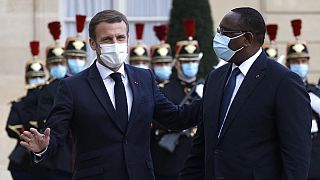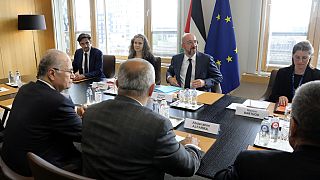Belgium
The war in Ukraine is the latest shock to hit global food production, causing concern about the food security situation in Africa.
Participants at the EU-Africa Business Summit exchanged ideas on how the two continents can build a new partnership aimed at ensuring sustainable food security.
“With the European commercial banks, we are working to provide trade finance facilities, we are to re-share in their portfolios in terms of exposure to African industry and to ensure that the fertilizer and seeds that are needed on an emergency basis do get delivered to Africa.” Solomon Quaynor, Vice President of African Development Bank stated.
Africa's precarious food security situation is the result of a variety of factors, some of which are structural.
While African farmers have land, they must depend on other countries for essential inputs such as fertiliser. And here at the EU-Africa Business Summit in Brussels, participants are calling for more private sector involvement and investment in African agriculture.
“Everybody understands the value of money in business. For us we think that one of the fundamental challenges for the private sector in Africa and for that matter Ghana is access to finance. So our government is working to address that, ” Alan Kyeremanten , Ghana Trade Minister added.
The war in Ukraine has not only caused a global grain shortage but that of fertilizer too. This is both a challenge and an opportunity for African fertilizer makers.
“I think Africa more than ever needs reliable partners, all stakeholders of the food value chain to stand with their partners and their customers on the continent. We at OCP are well aware of our responsibility to maintain our role as partners of Africa’s green revolution” Iliass El Fali, OCP Group added.
Experts say achieving long-term food security in Africa will rest heavily on building resilient agriculture value chains, investing in climate change adaptation, infrastructure and local manufacturing.













01:07
Pro-palestinian demonstrators protest in Rio de Janeiro as G20 summit unfolds
01:48
Meet one of the teams patrolling Senegal's waters to rescue migrants on small boats
01:31
France-trained Ukrainian soldiers prepare to deploy against Russia
Go to video
EU ends fishing agreement with Senegal amid overfishing concerns
01:11
Doctor jailed for over five years for commenting on Russia-Ukraine war
01:32
Kenya's Raila Odinga launches candidature for AU's top job